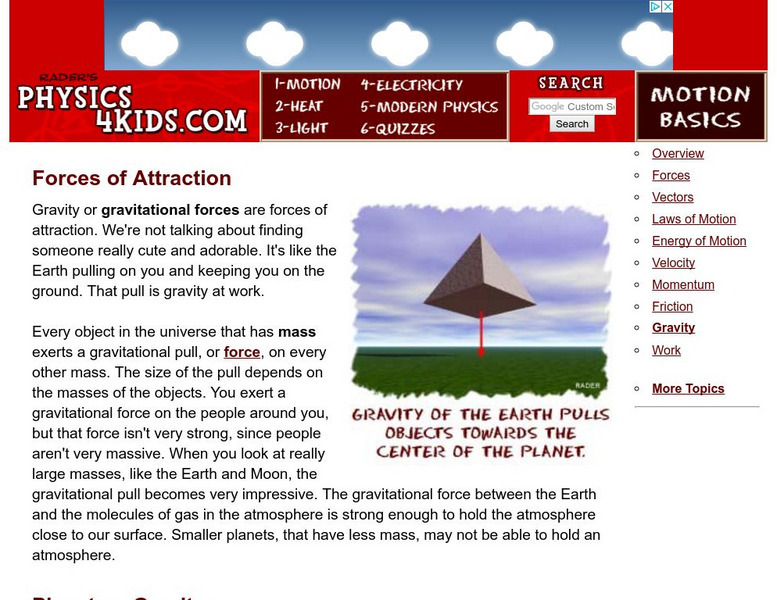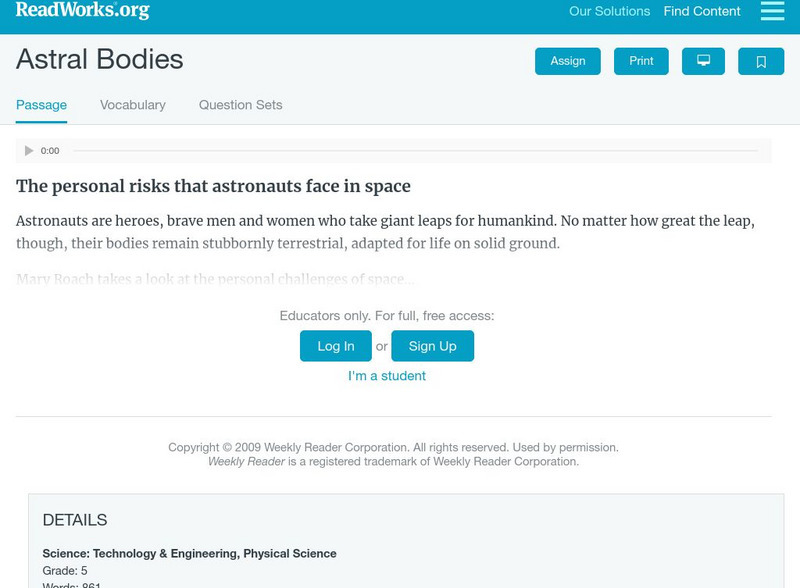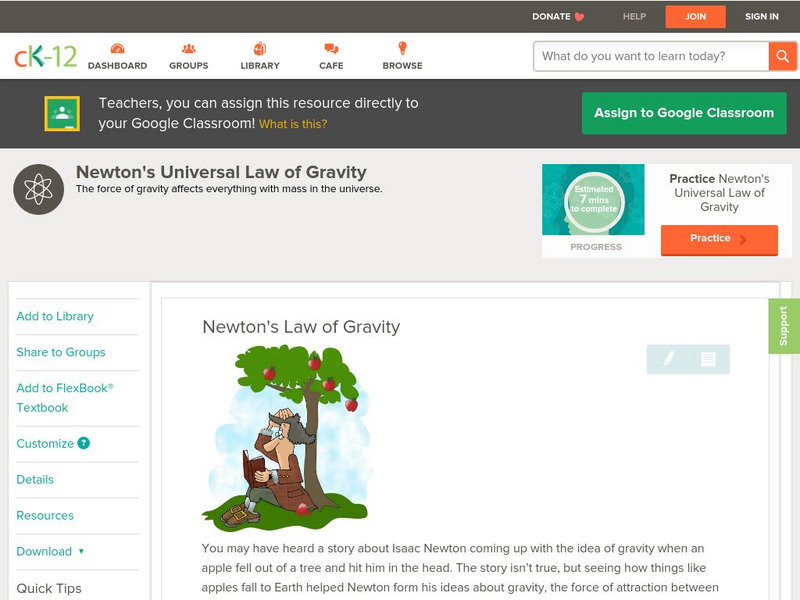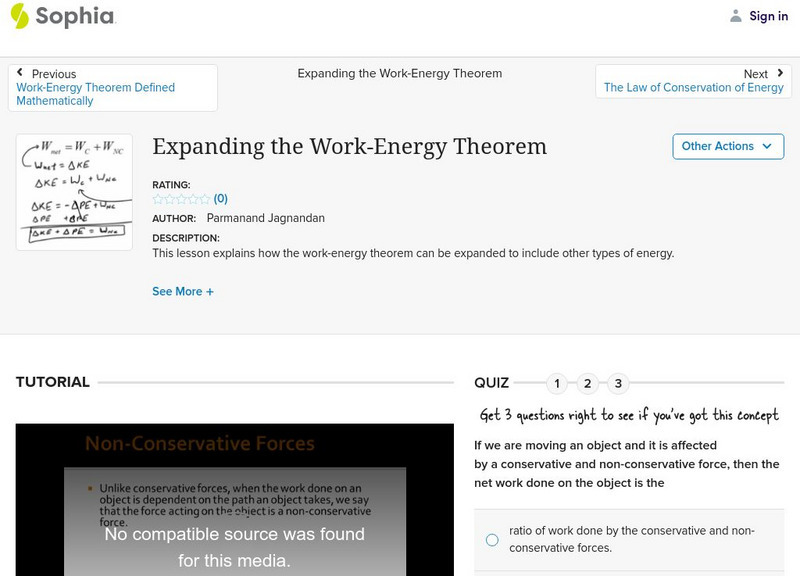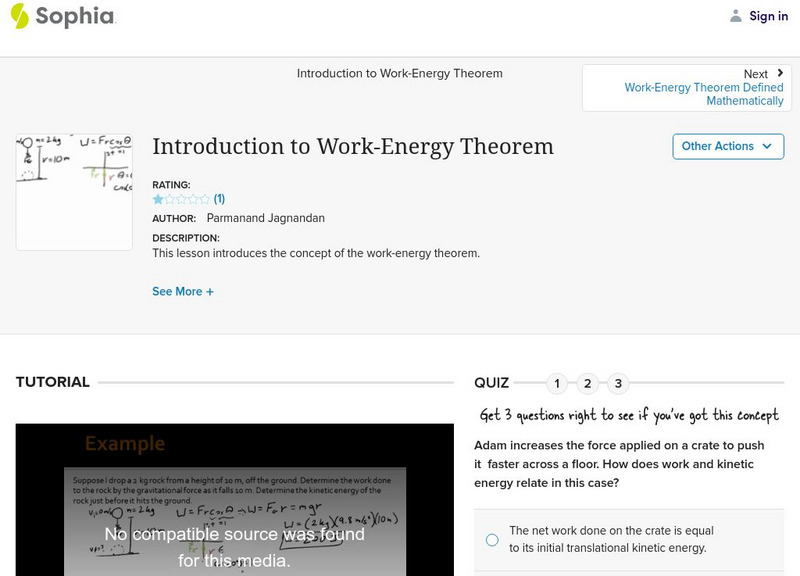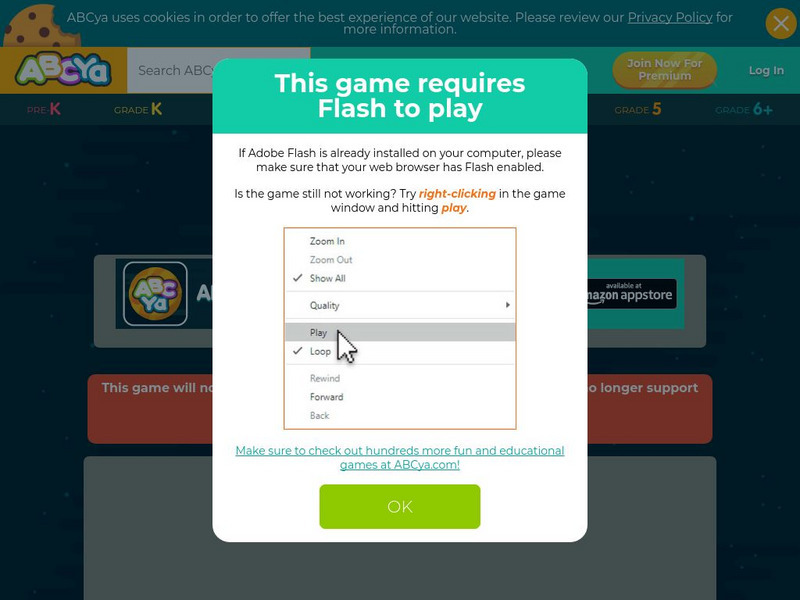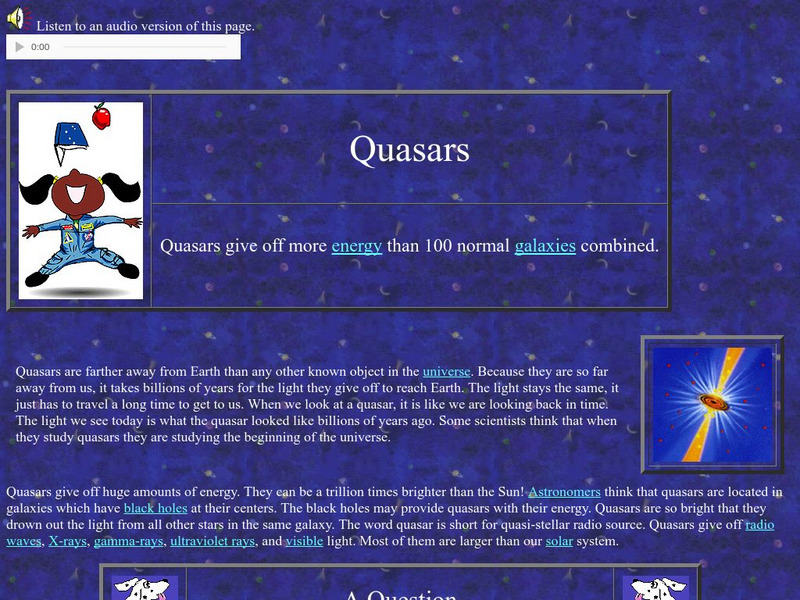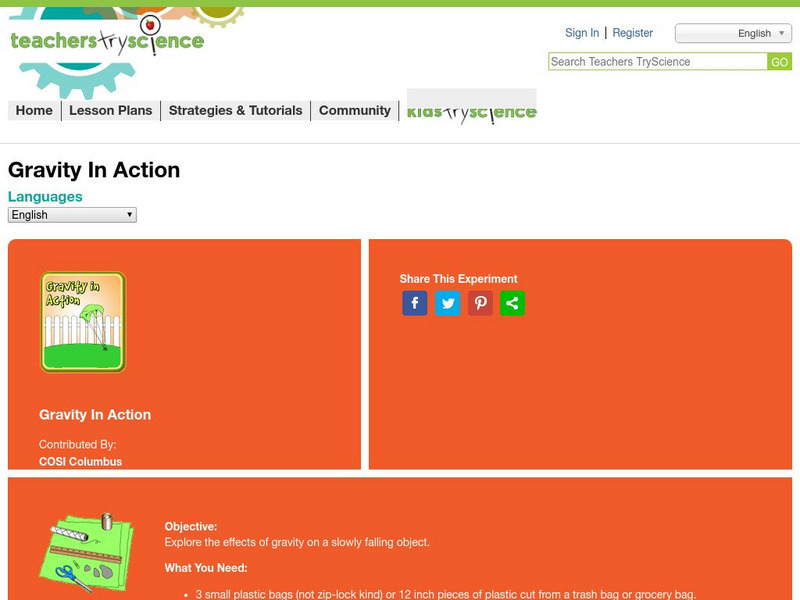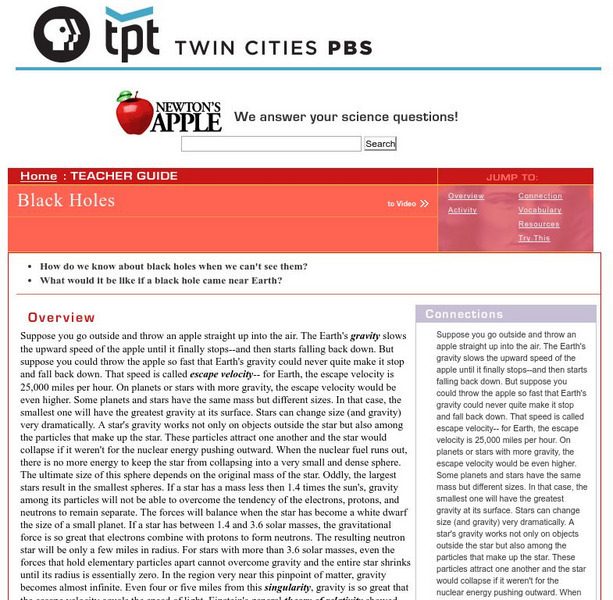Physics4kids
Physics4 kids.com: Forces of Attraction
Several diagrams provide explanations of planetary gravity as well as the gravity that exists between all objects.
Physics Classroom
The Physics Classroom: Circular, Satellite, Rotational: Roller Coaster G Forces
Roller coaster rides are notorious for creating accelerations and g-forces. The magnitude and direction of normal force and gravity during the motion through a coaster's loop are depicted this animation.
Read Works
Read Works: Astral Bodies
[Free Registration/Login Required] An informational text about being an astronaut and living in zero gravity. A question sheet is available to help students build skills in reading comprehension.
CK-12 Foundation
Ck 12: Physical Science: Acceleration Due to Gravity
[Free Registration/Login may be required to access all resource tools.] Acceleration due to gravity and why falling objects with different masses accelerate at the same rate.
CK-12 Foundation
Ck 12: Physical Science: Newton's Law of Gravity
[Free Registration/Login may be required to access all resource tools.] Newton's law of universal gravitation and factors that affect the strength of gravity between two objects.
Sophia Learning
Sophia: Expanding the Work Energy Theorem
A narrated tutorial which illustrates how the work-energy theorem can be expanded to include other kinds of energy. [10:07]
Sophia Learning
Sophia: Introduction to Work Energy Theorem
Watch this screencast to understand the work-energy theorem in regards to energy. [8:45]
ABCya
Ab Cya: Magic Pen: A Physics Based Game
A challenging game of physics for students to enjoy. Test gravity and patience by adding parts to the illustration to move a ball along to the flag.
Math Is Fun
Math Is Fun: Apparent Weight
Apparent weight is explored in this tutorial. Definitions and examples are provided.
Soft Schools
Soft Schools: Physics Quizzes: Newton's Three Laws
Assess your understanding of Newton's three laws of motion and the ability to distinguish between the three with this interactive multiple choice quiz. Receive immediate feedback to your answers.
Yale University
Open Yale Courses: Physics 200: Fundamentals of Physics: Kepler's Laws
This lecture explains Kepler's Three Laws of motion. Application of these laws are made to planetary movements around the sun. The lecture is available in multiple formats (audio, video, written transcript). Practice problems are also...
NASA
Nasa Star Child: Quasars (Level 1)
Learn why quasars are the brightest things in the universe. Vocabulary words linked to a glossary of terms and a printable version are available.
NASA
Nasa Star Child: Comets (Level 1)
Younger students learn why comets race through the sky as well as related vocabulary words and meanings.
NASA
Nasa: The Space Place: What Is Gravity Really?
What is known about gravity? Find out Einstein's thoughts on gravity in a brief overview of this mysterious force.
Teachers TryScience
Teachers Try Science: Gravity in Action
Here is a hands-on experiment that lets you discover how and why gravity works by making your own little parachutes.
TeachEngineering
Teach Engineering: Mobile Forces
The application of engineering principles is explored in the creation of mobiles. As students create their own mobiles, they take into consideration the forces of gravity and convection air currents. They learn how an understanding of...
PBS
Newton's Apple: Black Holes
This site from Twin Cities Public Television contains great information from a program called "Newton's Apple" concerning black holes. Contains activities for viewers to try to emphasize points related to black holes. Topics include:...
NASA
Nasa: Weight and Balance Forces Acting on an Airplane
The effects of forces exerted on an airplane wing are discussed both conceptually and mathematically. Illustrations and sample problems and solutions are provided.
Physics Classroom
The Physics Classroom: Circular Motion Principles for Satellites
From The Physics Classroom. Uses easy- to-understand language to discuss how circular motion principles apply to the motion of satellites. Describes the tangential velocity and centripetal acceleration of a satellite. Includes many...
Physics Classroom
The Physics Classroom: Mathematics of Satellite Motion
The mathematics associated with the motion of satellites is described. Equations (for period, velocity, acceleration and force) are stated, symbols described, and sample problems solved. Includes five practice problems with solutions and...
Physics Classroom
The Physics Classroom: Energy Relationships for Satellites
The orbits of satellites are described and an energy analysis is performed. Kinetic, potential and total mechanical energy are explained and applied to the motion of satellites.
Physics Classroom
The Physics Classroom: Kepler's Three Laws
The three laws of planetary motion as described by Kepler are stated and elaborated upon. Useful graphics and an easy-to-understand language are used to explain the nature of planetary motion. Both conceptual and mathematical. Includes a...
Georgia State University
Georgia State University: Hyper Physics: Kepler's Laws
An outstanding page describing Kepler's three laws of planetary motion.
Georgia State University
Georgia State University: Hyper Physics: Earth Orbit Velocity
A discussion and statement of an equation for orbital speed. An interactive JavaScript form allows the user to investigate the relationship between orbital height and orbital speed. A very good opportunity to practice and receive...


